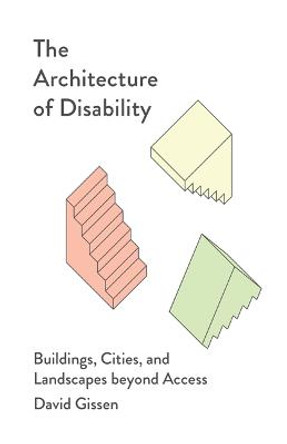Description
"All too often," wrote disabled architect Ronald Mace, "designers don't take the needs of disabled and elderly people into account." Building Access investigates twentieth-century strategies for designing the world with disability in mind. Commonly understood in terms of curb cuts, automatic doors, Braille signs, and flexible kitchens, Universal Design purported to create a built environment for everyone, not only the average citizen. But who counts as "everyone," Aimi Hamraie asks, and how can designers know? Blending technoscience studies and design history with critical disability, race, and feminist theories, Building Access interrogates the historical, cultural, and theoretical contexts for these questions, offering a groundbreaking critical history of Universal Design.
Hamraie reveals that the twentieth-century shift from "design for the average" to "design for all" took place through liberal political, economic, and scientific structures concerned with defining the disabled user and designing in its name. Tracing the co-evolution of accessible design for disabled veterans, a radical disability maker movement, disability rights law, and strategies for diversifying the architecture profession, Hamraie shows that Universal Design was not just an approach to creating new products or spaces, but also a sustained, understated activist movement challenging dominant understandings of disability in architecture, medicine, and society.
Illustrated with a wealth of rare archival materials, Building Access brings together scientific, social, and political histories in what is not only the pioneering critical account of Universal Design but also a deep engagement with the politics of knowing, making, and belonging in twentieth-century United States.
About the Author
Aimi Hamraie is assistant professor of Medicine, Health, and Society and American studies at Vanderbilt University.
Reviews
"Building Access is a seminal text that will be received with acclaim and become well-known for its reconstruction of how we think about access, disability, and design."-Rob Imrie, Goldsmiths University of London
"Aimi Hamraie gifts us with a rare kind of book, one that skillfully weaves critical disability studies together with technology studies and architectural history to unpack the American project of designing and making built environments purportedly usable by all. They ask us to think harder about who counts as the everyone of Universal Design, and how knowledge of body variability is created. Crucially, the book probes the ways disability access politics is deeply entangled with race through whiteness, bodily norms, activism, and practices material segregation. Anyone who cares about the built environment, technoscience, or disability politics will want to read this important book."-Michelle Murphy, University of Toronto
"Building Access is a persuasive, beautiful, and intrepidly researched book."-New Books Network
"Hamraie's skill in detailing the struggle, triumphs and ironies of this history makes this book a valuable addition to any critical architecture reading list."-Journal of Design History
Book Information
ISBN 9781517901646
Author Aimi Hamraie
Format Paperback
Page Count 336
Imprint University of Minnesota Press
Publisher University of Minnesota Press
Dimensions(mm) 254mm * 178mm * 38mm









